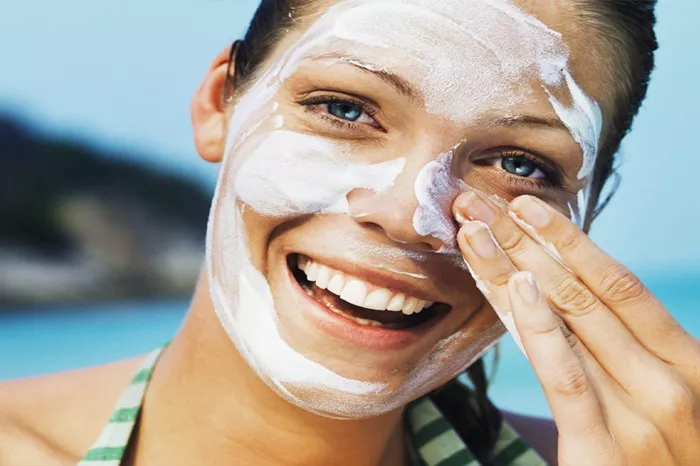When we step outside on a sunny day, the sun’s ultraviolet (UV) light triggers the body to produce endorphins that reduce stress and improve mood. UV rays also stimulate our skin to make vitamin D, and when we gaze at the morning sun, our bodies adjust our sleep-wake cycle accordingly. These benefits might tempt some to forgo sunscreen, a concern dermatologists frequently encounter.
Balancing Sun Benefits and Risks
Dr. Steven Q. Wang, director of dermatologic oncology and dermatology at Hoag Memorial Hospital Presbyterian in Newport Beach, Calif., highlights a prevalent misconception: “This is one of the biggest obstacles in people’s minds: the idea they shouldn’t use sunscreen for fear they won’t get vitamin D.”
Recent surveys reveal this fear. In one poll of over 1,000 U.S. adults, 11% believed sunscreen was more harmful than direct sun exposure. Another survey found that 15% thought sun exposure was the only way to obtain vitamin D.
However, sunscreen remains our most effective defense against skin cancer, a potentially deadly disease. UV rays damage skin cell DNA, and this damage accumulates over time. Each DNA repair increases the risk of mutations that can lead to cancer.
We consulted nine experts on whether daily sunscreen use is necessary and if sunlight’s benefits ever outweigh its risks. All agreed: there is no safe amount of unprotected sun exposure. They unanimously recommend wearing broad-spectrum sunscreen with an SPF of 30 or more every day. Here’s what you need to know about sunlight, sunscreen, and your health.
Does Sunscreen Block the Sun’s Mood-Boosting Benefits?
Not necessarily, says Dr. Elisabeth Richard, associate professor of dermatology at Johns Hopkins University School of Medicine. Daily sunscreen use does not prevent you from enjoying a mood boost from the sun’s visible light, which does not cause DNA damage like UV rays but can increase serotonin, a brain chemical that helps regulate mood. This is why light boxes can alleviate symptoms of seasonal affective disorder, explains Dr. Deborah Sarnoff, professor of dermatology at New York University.
Dr. Richard suggests staying active to compensate for any perceived loss of endorphins from sun exposure. Activities like walking, gardening, or picnicking can boost your mood even with sunscreen on. “People are happier under the sunshine,” Dr. Wang adds. “They’re more likely to lead an active lifestyle and enjoy social gatherings.”
Will Sunscreen Disrupt My Sleep Cycle?
Your body’s internal clock depends on sunlight. When the sun sets, your body releases melatonin, a hormone that promotes sleep. Conversely, sunlight in the morning helps wake you up.
Dr. Richard assures that merely seeing sunlight suffices for this process. “We get this benefit through our eyes, not our skin,” she explains. Even when wearing sunglasses, which protect your eyes from UV rays, you receive enough light to maintain your circadian rhythm.
Can I Get Enough Vitamin D with Daily Sunscreen?
Vitamin D is crucial for absorbing calcium and preventing conditions like osteoporosis, says Dr. Robert Ashley, an internal medicine doctor at UCLA Health. While UV exposure stimulates skin cells to produce vitamin D, dietary sources are also significant. Foods rich in vitamin D include fatty fish like salmon, tuna, and mackerel, as well as fortified products like milk and breakfast cereals.
Dr. Sarnoff notes that even diligent sunscreen users receive sufficient UV exposure to produce adequate vitamin D. This is because most people do not apply enough sunscreen to fully shield their skin consistently. “Even if you’re the best sunscreen user imaginable and you put on a thick layer and reapply it every two hours, there’s still a little bit getting through there,” says Dr. Sarnoff, also president of the Skin Cancer Foundation.
“The risk of skin cancer is much more real than the risk of vitamin D deficiency,” Dr. Wang emphasizes. He and other experts agree that the potential for UV-induced skin damage outweighs the benefits of sun exposure.
“People want to hear they can get direct sun exposure for a little bit of time, maybe five minutes to a half-hour, and that’s enough to get the benefits,” Dr. Sarnoff says. “But the truth is, why even do that?”
In conclusion, while the sun offers some health benefits, these can be enjoyed without compromising skin protection. Daily use of broad-spectrum sunscreen with an SPF of 30 or more is essential to prevent skin cancer and maintain overall skin health.
Related topics:
The New Era of Sunscreen: Skincare Brands Lead the Charge
Prioritize Skin Health: Fort Mill Dermatology Office Urges Check-Ups
Protect Yourself from Skin Cancer: Tips for Sun Safety


